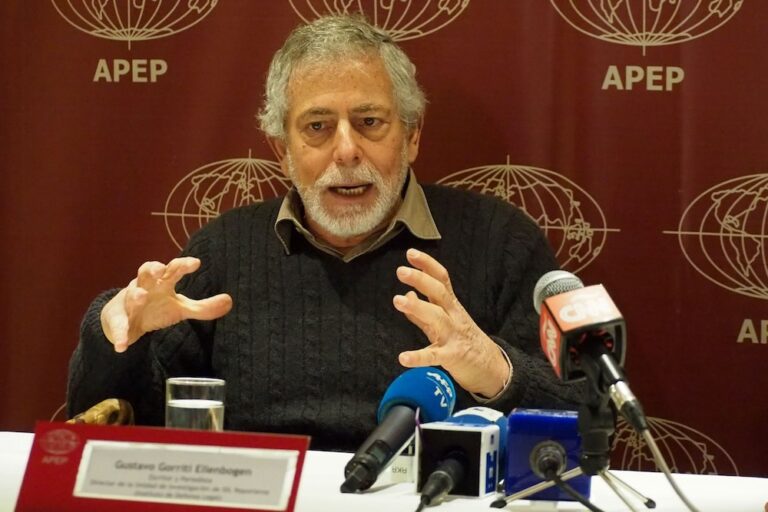(IPYS/IFEX) – “La República” newspaper reported on the existence of a fax sent by the president of the Joint Command of the Armed Forces and Commander General of the Peruvian army, César Saucedo Sánchez. The fax was sent to the regional military chiefs in the country, inviting them to a meeting to evaluate the various […]
(IPYS/IFEX) – “La República” newspaper reported on the existence of a fax
sent by the president of the Joint Command of the Armed Forces and Commander
General of the Peruvian army, César Saucedo Sánchez. The fax was sent to the
regional military chiefs in the country, inviting them to a meeting to
evaluate the various media under their jurisdiction.
According to the document, which is marked “strictly confidential”, some of
the topics on the agenda were the political tendencies of the radio, press
and television enterprises and the “affinity of the owners.”
According to military sources consulted by “La República”, the meeting was
held in the military headquarters on 7 June 1999, and was focused on
facilitating coordination with the most influential media and on discussing
strategies of how to neutralise the opposition press in the interior of
Peru.
During the meeting, it was suggested that the Ministry of Transport and
Communication “re-examine” the national operating licenses held by radio and
television stations, putting particular emphasis on those radio stations
whose journalistic stance is deemed inconvenient by the regime.
The military chiefs expressed their concern over the work of journalists who
are critical of the government, such as James Beuzevielle, director of
Radio Arpegio, in the Amazonian town of Iquitos. An attempt was made to
accuse Beuzevielle of the disturbances that took place in Iquitos in August
1998, because of his stance against free trade with Ecuador.
According to “La República”‘s sources, Radio Marañon, in the province of
Jaen, was mentioned as an example of how damaging it can be to “permit a
medium to hurt the image of the government and the army.” Radio Marañon
journalists have been receiving telephone threats and have been subject to
unusual assaults, thus far attributed to common crime (see IFEX alerts).
During the meeting, the chief of the Sixth Army Division, Juan Yanqui
Cervantes, showed a number of private documents, which “La República” was
able to get access to. According to these documents, Radio Marañon and its
director, priest Luis Távara Martín, are allegedly linked to extreme leftist
groups, including the “Frente de Defensa de los Bosques de San Ignacio”
(Front for the Defense of the San Ignacio forests) and the “Federacion
Unificada de Campesinos y Rondas” (Unified Federation of Peasants and Patrol
Guards, FUCARSI).
One of the intelligence reports states that “through these organisations,
José María Izúzquiza, the bishop of Jaén; Luis Távara Martín, a priest and
radio Marañon announcer; and the eleven terrorists (referring to peasants
falsely accused of being terrorists) (…) would meet and disseminate
statements against the forces of law and order and the government.”
Apparently, this secret document coincides with a 15 September 1997 letter
marked /B-2/DEINT-SxRM and published by “Caretas” magazine on 15 July. The
letter refers to bishop Izúzquiza, priest Távara and Eulert Jabe, radio
correspondent in San Jacinto, and their alleged “subversive inclinations”
and “attempts to discredit the armed forces and the intelligence services.”
These statements were primarily based on their actions in defense of the San
Ignacio forests and on their reporting on the meetings between Peru and
Ecuador.


